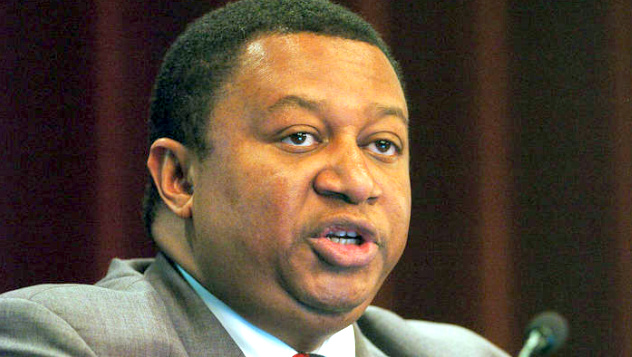Ladies and Gentlemen, Colleagues and friends, Good afternoon,
Exactly fifty years ago yesterday, on the 24th of January 1971, an event entitled the ‘European Management Symposium,’ began in Davos, Switzerland. Based on the concepts of multi-stakeholder participation, collaboration and congenial exchange outlined by the visionary Klaus Schwab, in his seminal work, ‘Modern Enterprise Management in Mechanical Engineering,’ this event provided a platform that was novel, indeed revolutionary, at the time.
It allowed top managers from corporations across Europe to engage with all their stakeholders, customers, suppliers – representatives from government and local communities, as well as academics specializing in business and finance.
In the majestic surroundings of the Davos resort, these thought-leaders discussed the latest management concepts and techniques, as well as the challenges facing businesses.
The inaugural ‘European Management Symposium’ was such a success that participants enthusiastically called for the event to be held again the following year. And so this rich tradition continued, and in 1987 it was renamed the World Economic Forum and last year, the 50th edition of it took place, which I was honoured to participate in.
Therefore, I can think of no better testimony to how the ‘Spirit of Davos’ has inspired subsequent generations, than today’s meeting of OPEC and the WEF taking place on this auspicious date.
It is once again a real pleasure to join the WEF’s Oil and Gas Team, ably stewarded by Mr Pedro Gómez, Head of Oil and Gas, for this important meeting this afternoon.
The relationship between OPEC and the WEF is based on shared values, namely, a commitment to stakeholder-ism, collaboration and international dialogue. This has inspired our collaboration on a host of fronts, including our active participation in many WEF events, Oil and Gas Community Board Meetings, and other special events.
Indeed, the mutual compatibility between our two organizations is exemplified in OPEC’s own story. Last September, we commemorated the 60th Anniversary of the founding of our Organization in Baghdad in 1960.
In a soon-to-be-published book which chronicles our story, there are many recurrent themes, but perhaps the most prominent is OPEC’s continual refrain for all stakeholders in the energy community to come together to tackle common challenges and identify opportunities.
Our calls over the decades for cooperation ultimately culminated in a formalized form with 10 non-OPEC producing countries under the ‘Declaration of Cooperation,’ signed on 10 December 2016.
On 12 April 2020, this unique platform proved invaluable, as OPEC, together with our partners, undertook the largest output adjustments in the history of the oil industry in order to counter the unprecedented demand contraction caused by the COVID-19 pandemic.
All our actions were enthused by the spirit of Davos; this commitment to acting together with other stakeholders is integral to who we are as an Organization and our pursuit of sustainable oil market stability.
We are keen to strengthen and enhance cooperation with the WEF going forward. The complexities of our modern world, especially in the energy sphere, means that no single stakeholder possesses all of the answers. It is only through working together that we can surmount the challenges of our age. With great enthusiasm, we would like to hear more about the WEF / International Business Council (IBC) -led
initiative on Measuring Stakeholder Capitalism, as well as the two additional Oil and Gas Community Workstreams on Resource Sharing Hubs and Data Exchange in Oil and Gas.
Our team has been busy digesting the literature on these workstreams and your activities in this regard but permit me to provide a few of the key takeaways from OPEC’s flagship publication, the World Oil Outlook 2020, that are also pertinent to our discussions today.
The first important point to emphasise is that the outbreak of the COVID-19 pandemic resulted in the sharpest downturn in energy and oil demand in living memory, something nobody could have foreseen when we met last year.
All forms of energy will be needed to support the post-pandemic recovery and address future energy needs. Oil is expected to retain the largest share of the energy mix throughout the outlook period, accounting for a 27% share in 2045. World oil demand is projected to increase from nearly 100 mb/d in 2019 to around 109 mb/d in 2045.
To meet this future demand, the global oil sector will need cumulative investment of $12.6 trillion in the upstream, midstream and downstream through to 2045. That takes us to the crux of our agenda today, as we discuss current trends in the investment community and wider societal pressures that could have a profound impact on the investment requirements that are essential to meet the demand needs of tomorrow. The efficacy of ‘divestment’ has also been called into question by figures as prominent as Bill Gates, who famously said in an interview last year,
“Divestments to date probably have reduced about zero tonnes of emissions.”
This is a significant statement because the international community’s focus must be on reducing greenhouse gas emissions in order to achieve the long-term goal of the Paris Agreement.
This requires ‘all hands on deck’ and not the ostracizing of an industry that could make a major contribution to the achievement of this goal. We do not subscribe to the misleading narrative of an energy transition from one source to another. The challenge of tackling emissions has many paths and we need to explore them all.
At OPEC, as responsible global citizens, we take the climate challenge extremely seriously. We advocate enhanced global collaboration to address the challenge and support the multinational channels that would allow a more coherent, balanced and integrated approach for realizing the Paris Agreement goal and interlinked sustainable development aspirations.
The energy transition must be holistic, inclusive, fair and equitable in accordance with the core UNFCCC principles of equity and common but differentiated responsibilities and respective capabilities.
Technological innovation, including Carbon Capture and Sequestration technologies (CCUS), utilization of hydrogen, enhanced investment for energy access, and improved energy efficiency will be crucial in securing our sustainable future and building resilient societies in the post-pandemic era. In this context, we should overcome financial and institutional capacity constraints and support innovative funding for new technologies with an inclusive approach.
My friends,
The challenges we face in the immediate and longer-term can appear daunting, almost overwhelming. Yet, we know from the history of our respective Organizations that challenge and opportunity usually follow one another closely. In this regard, we can find solace in the words of the founder of the WEF, Klaus Schwab, when he said,
“The pandemic represents a rare but narrow window of opportunity to reflect, reimagine and reset our world.”
With the 50th Anniversary of the WEF and the 60th Anniversary of OPEC, we should view our meeting today as an opportunity to recommit ourselves to our guiding principles and vision. The WEF will always have a dependable partner in OPEC as we renew our commitment to building a better world. With that, I wish us successful discussions today.
*Remarks by Mohammad Sanusi Barkindo, OPEC / World Economic Forum Connect Virtual Meeting, 25 January 2021, Drafted by MQ; First draft for SG
© 2021 Organization of the Petroleum Exporting Countries













